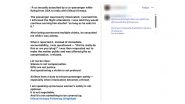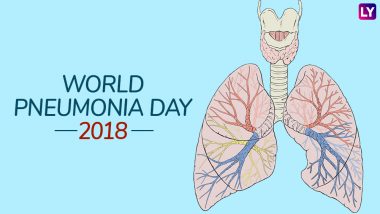Pneumonia is a disease caused by an inflammation in one or both lungs. It affects the air sacs of the organs known as alveoli, causing mild to severe illness in the afflicted. According to the World Health Organization (WHO), this deadly disease is the “world’s leading infectious killer of children under the age of 5,” despite being so easily preventable and treatable. According to Pneumonia and Diarrhea Progress Report by the International Vaccine Access Center (IVAC) at the Johns Hopkins Bloomberg School of Public Health, more than 1.5 lakh children in India died of pneumonia. Since 2009 every year on November 12, World Pneumonia Day is observed to create a better understanding of the disease and to minimise fatalities. To accomplish this, it’s important to understand pneumonia better by knowing what its causes, symptoms and treatment are.
What is Pneumonia?
The word pneumonia comes from the Greek word for lung, pneumōn. The disease causes the air sacs in the lungs or alveoli to fill up with pus or fluid. This not only makes breathing difficult and painful, but also reduces the intake of oxygen in the body.
Pneumonia has been around in the world for a long time and was first described by the father of modern medicine Hippocrates between 460-370 BC.
What Causes Pneumonia?
Germs: Common causes of pneumonia are pathogens such as bacteria, viral and fungi, mainly respiratory syncytial virus and pneumococcus bacteria. Accordingly, the disease is classified as bacterial pneumonia, viral pneumonia, fungal pneumonia or mycoplasma pneumonia. Dilip Kumar Admitted to Hospital for Recurrent Pneumonia.
Environment: Sometimes, the environment can also cause pneumonia. When the patient contracts the disease at a hospital, it’s called hospital-acquired pneumonia. When it’s contracted outside a medical institution, it’s called community-acquired pneumonia.
Mode: When the patient acquires the disease through inhalation of contaminated air or liquid, it’s called aspirational pneumonia. Patients who are put on mechanical ventilators also suffer from ventilator-associated pneumonia.
What Are The Symptoms of Pneumonia?
Since pneumonia affects the lungs, most of the symptoms of the disease are related to the respiratory system. Some of them are:
- Coughing
- Fever
- Wheezing
- Pain in the chest
If the pneumonia is caused by a virus, flu-like symptoms along with fever are commonly seen. Bacterial pneumonia may cause high fever, discolouration of the nails and skin and delirium.
Infants suffering from pneumonia suffer from unconsciousness, shivering and convulsions.
Who is At Risk of Pneumonia?
People with compromised immune systems taking steroids or cancer drugs are most at risk of pneumonia. Those who are immunocompromised also include HIV patients. Musician Freddie Mercury of the English band Queen was known to have succumbed to pneumonia, an AIDS-related complication.
Children with weak immunity are the most vulnerable ones. Infants who are undernourished and not breastfed have weaker defences against pathogens. Environmental factors such as smoke inhalation and passive smoking make children susceptible to pneumonia.
Pneumonia is also seen among people who have suffered a stroke, are bedridden or have trouble swallowing. Those who smoke or abuse drugs and alcohol are also at risk.
How Is Pneumonia Treated?
Pneumonia is first diagnosed through a chest X-ray, blood test, sputum test or CT scan. Depending on the type of pneumonia, doctors may prescribe antivirals, antifungals or antibiotics.
It is mostly treated with oral antibiotics such as amoxicillin if it’s a bacterial infection. But hospitalisation is required in serious cases of pneumonia.
How Can Pneumonia Be Prevented?
The best defence against pneumonia is prevention. There are vaccines to prevent pneumonia from happening in the first place. The National Health Portal of the Indian Government recommends vaccination against diseases such as pertussis (whooping cough), measles, haemophilus influenza type B infections (Hib), pneumococcal (PCV) and rotavirus infections (Universal Immunisation Programme).
Healthy practices like handwashing, drinking clean water, reducing pollution indoors, etc. go a long way in preventing pneumonia.
Maintaining a healthy lifestyle can help reduce the risk. Experts opine that quitting smoking can make a big difference.
(The above story first appeared on LatestLY on Nov 12, 2018 09:00 AM IST. For more news and updates on politics, world, sports, entertainment and lifestyle, log on to our website latestly.com).













 Quickly
Quickly


